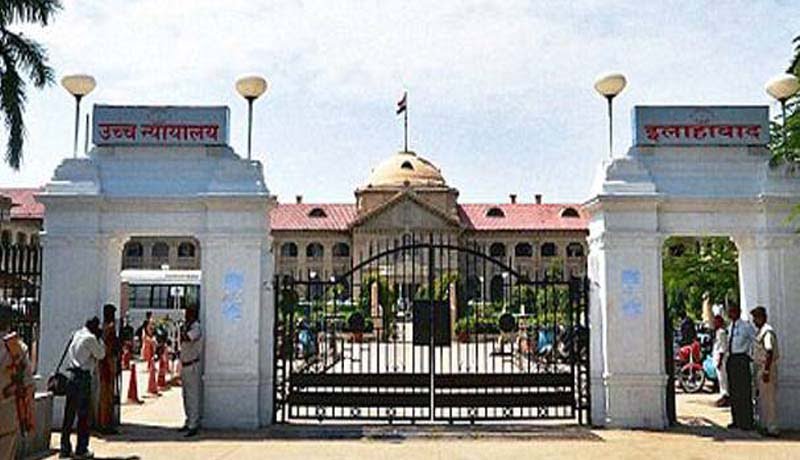A Director’s Admission to Undisclosed Income cannot be a Ground for Transferring a Case: Allahabad HC lays down Conditions for Transferring a Case u/s 127

While scrapping an order transferring a case from Delhi to Noida, the division bench of the Allahabad High Court held that the holding of the office of a director by the petitioner and his admission to the undisclosed income are not sufficient grounds for transferring a case under section 127 of the Income Tax Act.
The division bench comprising of Justice Pankaj Mithal and Justice Vinod Kumar Misra also laid down necessary conditions which are bound to be followed by the transferring authority while exercising its power to transfer cases under section 127 of the Income Tax Act.
The sole grievance of the petitioner is that, out of a group of cases of Sun world Group of Companies proceeded in connection with search under section 132, the case of the petitioner has been transferred from ITO, New Delhi to the Deputy Commissioner /Assistant Commissioner, Income Tax, Central Circle, NOIDA for the purpose of assessment.
Before the High Court, the petitioner submitted that no reasonable opportunity was given to him while transferring the case and the objection given by him vide letter has not been judiciously considered. He claimed that the report which forms basis of the order was not even supplied to him.
The Revenue took a stand that the assessee has participated in all the proceedings, and the objections raised by him with regard to the transfer o cases found not satisfactory by the Principal Commissioner of Income Tax.
The division bench held that the petitioner is one of the Directors of the aforesaid group of companies and that certain incriminating documents were found during search so the case of the petitioner cannot be separated from others.
As per section 127 of the Act, the competent authority can transfer a case from one Assessing Officer to another Assessing Officer under two situations. Firstly, where the transfer is from one Assessing Officer to another Assessing Officer subordinate to the Authority competent to transfer; Secondly, where the transfer is from one Assessing Officer to another Assessing Officer but not subordinate to the same Transferring Authority.
The bench observed that while transferring a case under the above two circumstances, the transferring authority, i.e, the Principal Commissioner of Income Tax, in the instant case, is bound to give a reason in writing to the assessee. The bench said that the Principle Commisioner of income Tax, while exercising his power under section 127 is supposed to follow the principles of natural justice. He has to give reasonable opportunity of hearing to the assessee if it is so possible and has to record reasons for transfer of case(s).
“The Principal Commissioner of New Delhi, from whose jurisdiction, the case was proposed to be transferred could not have ordered the transfer of the case without giving reasonable opportunity of hearing to the Assessee, if it was so possible and without recording reasons for such transfer. Therefore, until and unless, the above two conditions, which are part and parcel of the principles of natural justice, were fulfilled, the order of transfer would not be legally sustainable.”
Perusing the reasons recorded by the authorities was not adequate to transfer the case. It was observed that reasons are only to the effect that the case of the petitioner cannot be separated from the other cases of the aforesaid group of companies and that the petitioner is one of the directors, who had admitted undisclosed income. “The holding of the office of a director by the petitioner and his admission to the undisclosed income, if any, is not at all relevant for transfer of the case. The petitioner had not demanded separation of his case from other cases rather wanted all of them to be proceeded in Delhi, but no reason was assigned for shifting it from Delhi to Noida. The reply of the petitioner was not dealt with either by the two authorities in their report, which forms the basis for transfer of the case or by the Principal Commissioner in passing the impugned order. Moreover, there is no categorical consent or agreement of the Principal Commissioner, C.I.T. (Central), Kanpur, for the transfer of the case.”
“The aforesaid two reasons are not relevant for the transfer of the petitioner's case from one Assessing Officer(s) to one or more Assessing Officer(s) either subordinate to the same competent authority or outside his jurisdiction.”
The bench also observed that the Principal Commissioner of Income Tax, Delhi, has not recorded his independent reasoning or finding about the objections raised by the petitioner. He does not even record that he is satisfied with the report as submitted to him and that he agrees with the same. The bench also accepted the contention of the assessee that the report as relied upon by the petitioner forming the basis of the order was never supplied to the petitioner.
Allowing the petition, the bench said that “In view of the above, the order of transfer passed on behalf of the Principal Commissioner of Income Tax, New Delhi is not only without opportunity of hearing to the petitioner but is also without saying that it is not possible to do so and at the same time fails to record specific and material reasons for rejecting the objections and for the necessity of transfer of the petitioner's case. In fact, it envisages to segregate and transfer the case of the petitioner from other cases of the group, which is contradictory to the intention expressed by the authorities in the report forming the basis of transfer of the case.”
Read the full text of the Judgment below.


